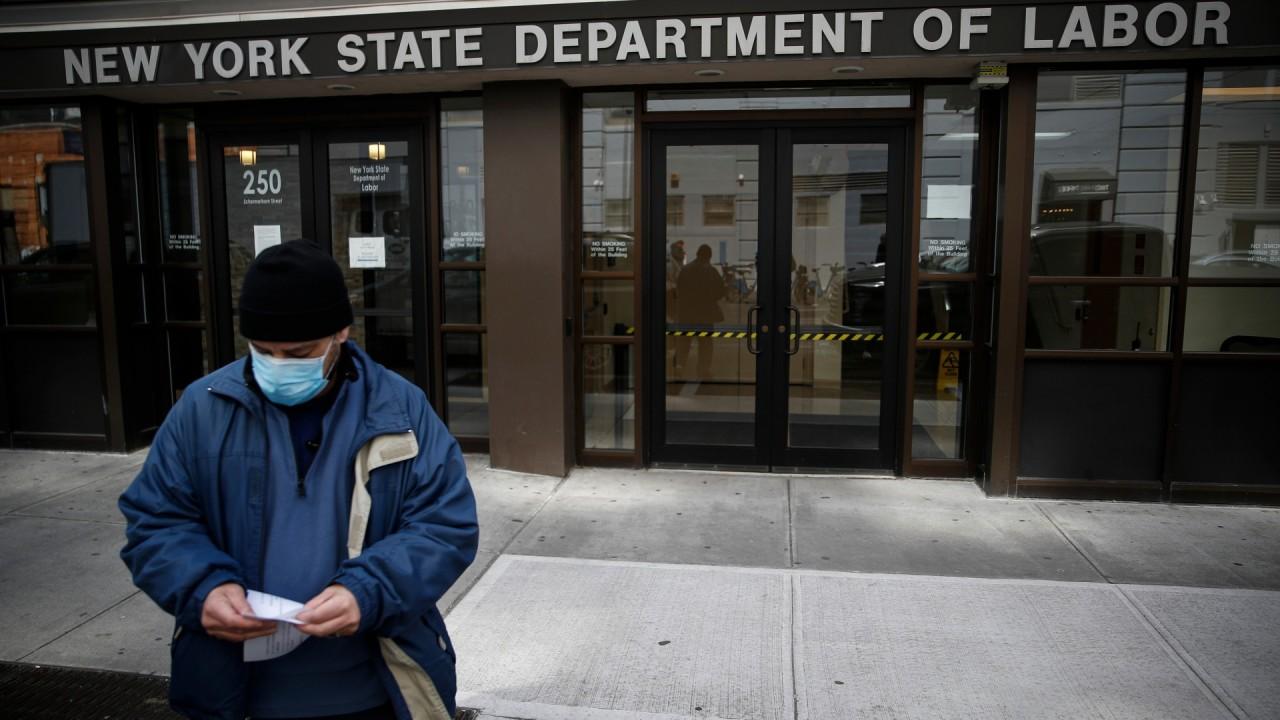Coronavirus-triggered recession could put 80 million US jobs at risk
Not all of those jobs will be lost, but it’s possible that as many as 10 million workers could see some impact to their paychecks
As the coronavirus outbreak forces American life to come to a standstill, the odds of the U.S. plunging into a recession are increasingly likely.
While economists wait to evaluate how severe the downturn could be, a bleak new report published by Moody’s Analytics found that more than half of the estimated 153 million jobs in the U.S. are at high or moderate risk as a result of COVID-19, the disease caused by the novel coronavirus.
Not all of those jobs will be lost, but it’s possible that as many as 10 million workers could see some impact on their paychecks via layoffs, furlough, fewer hours or wage cuts, according to Mark Zandi, chief economist at Moody’s Analytics.
Moody’s Analytics projected that at least 27 million of those 80 million jobs are at high risk as a result of the virus outbreak. Most of the at-risk jobs are concentrated in the transportation and travel, leisure and hospitality, temporary help services and oil drilling and extraction industries.
WHAT TRIGGERS AN ECONOMIC RECESSION?
The other 52 million jobs at “moderate” risk include positions in industries such as construction, manufacturing, motion pictures, wholesale trade, retail trade and private education services.
“Shell-shocked businesses are preparing to not only reduce payrolls but also curtail their investment,” the note said. “Businesses were already nervous about making big investment decisions because of the U.S. trade war with China, but the virus is too much to bear.”
Official government data isn't expected to reveal the extent of the economic disruption until April 3, when the Department of Labor releases its March jobs report.
But the forecast is ominous: The Labor Department said last week that the number of American filings for unemployment benefits had surged to 281,000 for the week that ended March 14, the highest number since June 2017.
Companies are just starting to announce coronavirus-related layoffs, so the number is expected to skyrocket on Thursday as much of the economy shuts down to combat the pandemic. Goldman Sachs estimates that jobless claims surged to 2.25 million during the week ending on March 21, blowing past the previous record of 695,000 set in 1982.
HOW TO APPLY FOR UNEMPLOYMENT BENEFITS
“Many U.S. states have reported unprecedented surges in jobless claims this week,” economist David Choi wrote in a note to clients late Thursday. “While it is possible that claims were front-loaded to start off the week -- implying a slower pace of claims for the week as a whole -- or that our sample is biased toward states with a larger increase in claims, even the most conservative assumptions suggest that initial jobless claims are likely to total over 1 million.”
Kevin Hassett, the former White House Council of Economic Advisers chairman, issued a dire warning during a CNN interview that jobs reports for March and April could show horrific numbers on a scale unseen since the 2008 financial crisis. He predicted losses of close to 1 million jobs in the coming reports.
"We really could see the worst jobs reports we've ever seen in our history," he said.




















